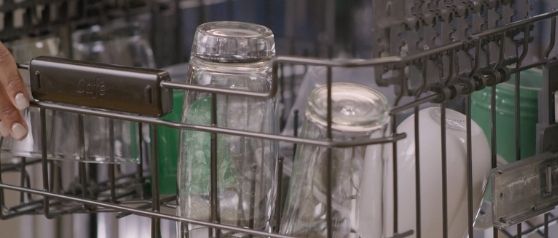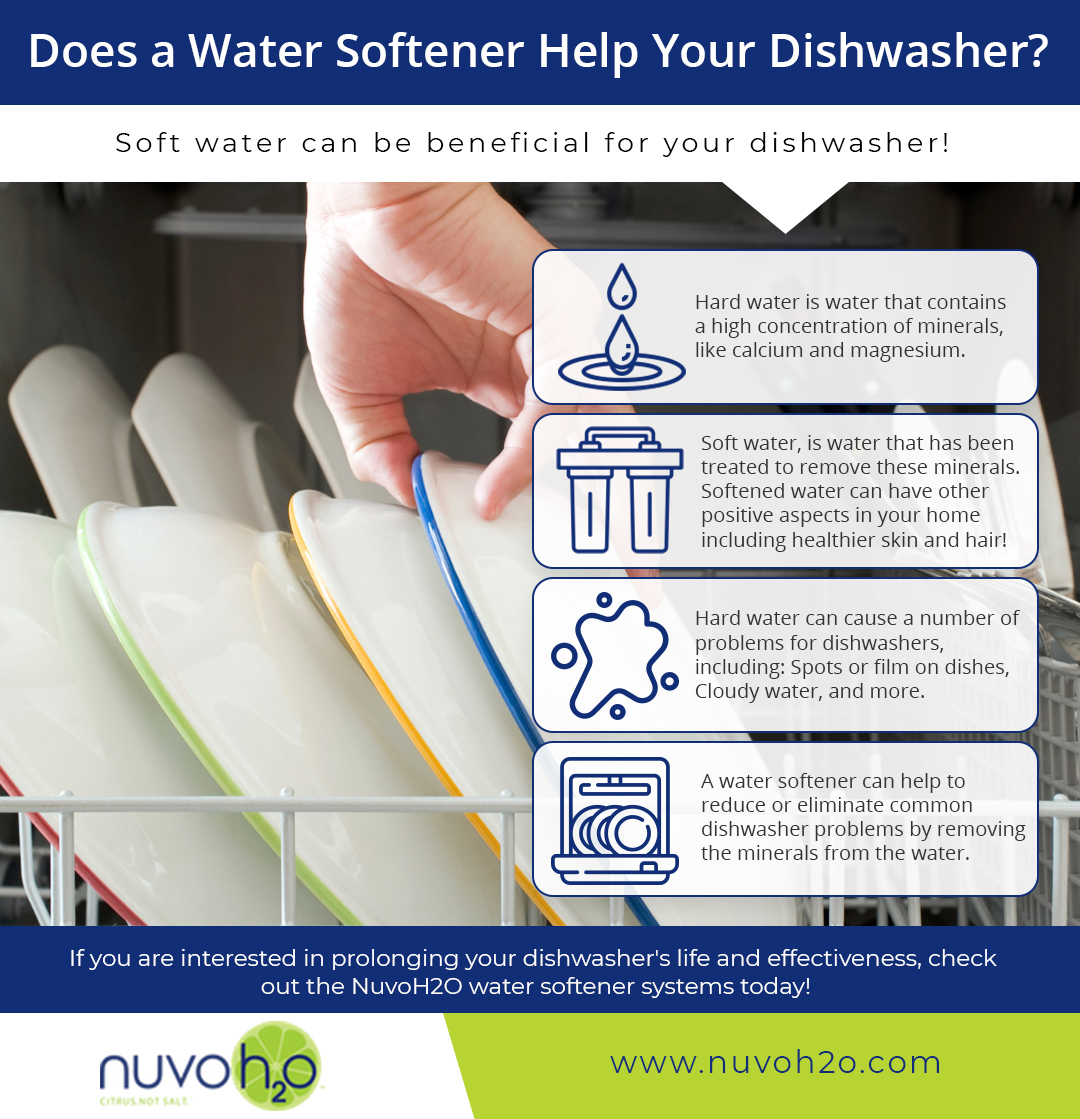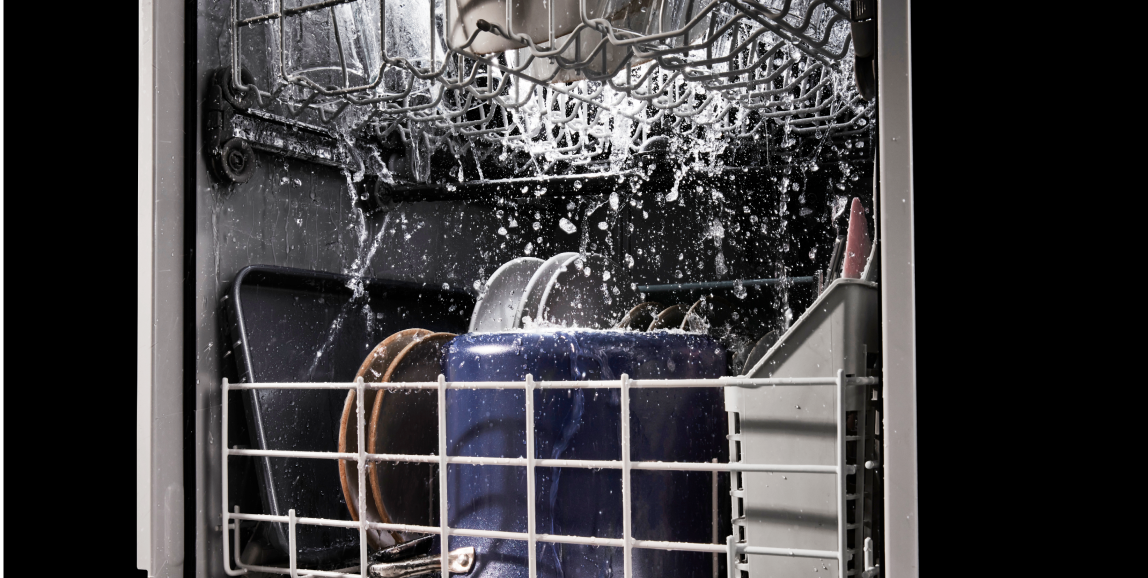Is your dishwasher leaving spots on your glasses or failing to clean your dishes properly? If so, hard water might be the hidden culprit behind these frustrating problems.
When minerals like calcium and magnesium build up inside your dishwasher, they can cause a range of issues—from clogged spray arms to rusted parts—that reduce cleaning performance and shorten your appliance’s lifespan. But don’t worry, understanding how hard water affects your dishwasher is the first step to fixing these problems and protecting your investment.
Keep reading to discover the common dishwasher problems caused by hard water and simple ways you can tackle them for sparkling clean dishes every time.

Credit: cascadeclean.com
Hard Water Effects
Hard water contains minerals like calcium and magnesium. These minerals affect dishwashers in many ways. They cause buildup, reduce cleaning power, and damage parts. Understanding these effects helps in keeping your dishwasher efficient and long-lasting.
Limescale Buildup
Minerals in hard water leave a white, chalky layer inside the dishwasher. This limescale builds up on heating elements and spray arms. It makes the dishwasher use more energy to heat water. Over time, this buildup can block water flow and reduce cleaning power.
Reduced Cleaning
Limescale stops detergents from working well. It leaves spots and streaks on dishes and glassware. Food particles may remain stuck on plates after washing. Hard water minerals reduce the dishwasher’s ability to clean effectively.
Clogged Components
Mineral deposits can block small pipes and spray arm holes. This reduces water pressure and flow inside the machine. Poor water circulation lowers cleaning results. Clogs can cause the dishwasher to stop working properly.
Corrosion And Rust
Hard water minerals cause metal parts to corrode and rust. This damages pumps, heating elements, and other components. Rust can cause leaks and breakdowns. Corrosion weakens the dishwasher and leads to expensive repairs.
Shortened Lifespan
The extra strain from mineral buildup wears out the dishwasher faster. Parts break down sooner and efficiency drops. This leads to costly repairs or early replacement. Hard water reduces the overall life of your dishwasher.

Credit: nuvoh2o.com
Signs Of Hard Water Damage
Hard water can cause serious damage to your dishwasher over time. The minerals in hard water build up inside the machine and on your dishes. These deposits reduce cleaning efficiency and may lead to costly repairs. Recognizing the signs of hard water damage helps keep your dishwasher running well.
White Residue On Dishes
A common sign of hard water is a white, chalky residue on dishes. This residue is mineral buildup left after water dries. It makes your dishes look dirty even after washing. Regular cleaning may not remove this stubborn layer.
Cloudy Glassware
Glassware washed in hard water often appears cloudy or spotted. Minerals cause this film that dulls the shine of your glasses. Over time, this cloudiness becomes permanent and hard to clean.
Food Particles Left Behind
Hard water reduces detergent effectiveness. This results in food particles sticking to plates and bowls. Your dishwasher may fail to rinse off all residue properly. You might notice leftover bits after the cycle ends.
Strange Noises
Mineral buildup can block spray arms and pipes. This blockage makes your dishwasher work harder. The machine may produce unusual sounds like grinding or buzzing. These noises signal internal parts may be struggling.
Error Codes
Some dishwashers display error codes when problems arise. Hard water damage can cause these errors. The codes may indicate issues like drainage problems or sensor failures. Check your user manual to understand specific error messages.
Preventive Measures
Preventing dishwasher problems caused by hard water keeps your appliance running smoothly. Simple steps reduce mineral buildup and improve cleaning results. Consistent care protects your dishwasher and dishes from damage.
Using Rinse Aids
Rinse aids help water slide off dishes quickly. They reduce spots and mineral deposits on glassware. Use rinse aids regularly for clearer, shinier dishes. They also protect the dishwasher’s interior from hard water damage.
Hard-water Detergents
Detergents made for hard water contain special ingredients. These break down minerals and prevent residue buildup. Using hard-water detergents improves cleaning power. They help avoid cloudy dishes and clogged spray arms.
Dishwasher Salt
Dishwasher salt softens water inside the machine. It prevents limescale from forming on heating elements. Add salt as directed to keep your dishwasher efficient. This simple step extends the appliance’s lifespan.
Regular Cleaning Routines
Clean the dishwasher often to remove mineral deposits. Run empty cycles with vinegar or dishwasher cleaner monthly. Check and clean filters and spray arms to prevent clogs. Regular cleaning ensures better water flow and performance.
Cleaning Techniques
Cleaning your dishwasher regularly helps fight the problems caused by hard water. Hard water leaves mineral deposits that reduce cleaning power and damage parts. Using simple cleaning techniques can remove buildup and keep your dishwasher working well. Here are some effective methods to clean your dishwasher and prevent hard water issues.
Vinegar Cycle
Vinegar is a natural cleaner that breaks down mineral deposits. Place a cup of white vinegar in the dishwasher’s bottom rack. Run a hot water cycle without any dishes or detergent. The vinegar will dissolve limescale and remove odors. Repeat this process once a month to keep your dishwasher fresh.
Specialized Cleaners
Specialized dishwasher cleaners target tough mineral buildup. These cleaners come in tablets or powders and remove limescale and grease. Follow the product instructions for the best results. Using these cleaners once a month helps maintain your dishwasher’s performance and protects its parts.
Filter Maintenance
The dishwasher filter traps food and minerals. Check the filter regularly and clean it to avoid clogs. Remove the filter and rinse it under running water. Use a soft brush to clear stubborn debris. Keeping the filter clean improves water flow and prevents damage from hard water deposits.
Spray Arm Cleaning
Minerals can clog the spray arms, reducing water pressure. Remove the spray arms according to your dishwasher’s manual. Rinse them under warm water and use a toothpick or small brush to clear blocked holes. Regular cleaning ensures even water spray and better cleaning results.
Water Softening Options
Hard water causes many dishwasher problems by leaving mineral deposits. These deposits affect cleaning and damage parts. Water softening helps reduce these minerals. Softening options vary based on your needs and budget. Choosing the right softener can protect your dishwasher and improve water quality.
Whole-house Softeners
Whole-house softeners treat all water entering your home. They use ion exchange to remove calcium and magnesium. This system protects all appliances and plumbing from hard water. Installation usually happens at the main water line. It requires professional setup and regular salt refills. Whole-house softeners provide consistent soft water everywhere in the house.
Point-of-use Softeners
Point-of-use softeners treat water at a single outlet. They are smaller and cheaper than whole-house systems. You can install them near the dishwasher or kitchen sink. These units reduce minerals only in the water used for dishwashing. They are easier to install and maintain. Ideal for renters or homes with low hard water levels.
Benefits Of Softened Water
Softened water prevents limescale buildup in your dishwasher. It improves detergent efficiency and cleans dishes better. Your dishwasher uses less energy and lasts longer. Soft water also protects pipes and plumbing from damage. You save money on repairs and replacements. Softened water makes your dishwasher run smoothly and keeps dishes spotless.
Repair And Replacement Tips
Repair and replacement are key to keeping your dishwasher working well despite hard water issues. Knowing how to spot damaged parts and when to seek help saves time and money. Simple fixes can often restore performance without costly service calls.
Identifying Damaged Parts
Look for white or chalky buildup on spray arms and filters. Check heating elements for rust or rough spots. Listen for unusual noises from the pump or motor. Slow draining or poor cleaning shows signs of clogged pipes or worn seals. Early spotting prevents further damage.
When To Call A Technician
Call a professional if leaks appear or the dishwasher stops working. Strange sounds or error codes also need expert attention. Avoid trying repairs on electrical parts yourself. A technician can safely fix internal damage or replace faulty components.
Cost-effective Fixes
Run a cleaning cycle with vinegar or a dishwasher cleaner monthly. Replace filters and clean spray arms to improve water flow. Use rinse aids and hard water detergents to reduce mineral buildup. These small steps keep your dishwasher running longer without expensive repairs.
Long-term Care
Long-term care is vital for dishwashers facing hard water challenges. Regular attention helps prevent damage and maintains cleaning power. A proactive approach reduces buildup and extends your machine’s life.
Routine Maintenance Schedule
Set a maintenance routine to keep your dishwasher clean. Run a cleaning cycle with vinegar or dishwasher cleaner monthly. Check and clean spray arms and filters every few weeks. Remove mineral deposits before they cause problems. Regular upkeep ensures better performance and fewer repairs.
Monitoring Water Hardness
Test your water hardness regularly using simple kits. Knowing hardness levels helps adjust detergent and rinse aid use. Hard water needs special products to work well in dishwashers. Track changes in water quality to prevent sudden buildup. This small step protects your dishwasher and dishes.
Upgrading Dishwasher Features
Consider dishwashers with built-in water softening systems. These models reduce mineral buildup inside the machine. Look for features like self-cleaning filters and enhanced spray arms. Upgraded dishwashers handle hard water better and clean more efficiently. Investing in better technology saves money on repairs later.

Credit: www.affresh.com
Frequently Asked Questions
Does Hard Water Cause Dishwasher Problems?
Yes, hard water causes dishwasher issues like limescale buildup, clogged spray arms, reduced cleaning efficiency, and metal corrosion. These mineral deposits damage parts and shorten the appliance’s lifespan. Using water softeners and specialized detergents helps prevent these problems and improves dishwasher performance.
How To Fix A Dishwasher With Hard Water?
Use dishwasher salt and hard-water detergents to prevent buildup. Clean filters and spray arms regularly. Run vinegar cycles to remove deposits. Consider installing a water softener for long-term protection against mineral damage and improve dishwasher performance.
How Do I Protect My Dishwasher From Hard Water?
Use dishwasher salt and hard-water detergents to reduce mineral buildup. Clean filters and spray arms regularly. Run vinegar cycles to remove limescale. Install a water softener for long-term protection. These steps prevent clogs, corrosion, and improve cleaning efficiency.
How Long Do Dishwashers Last With Hard Water?
Dishwashers exposed to hard water usually last 5 to 7 years due to limescale buildup and corrosion. Regular maintenance extends their lifespan.
Does Hard Water Damage Dishwasher Parts?
Hard water minerals cause rust and corrosion, which damage metal parts like pumps and heating elements.
Conclusion
Hard water causes many dishwasher problems like buildup and clogs. These issues reduce cleaning power and can damage parts. Regular cleaning and using special detergents help a lot. Installing a water softener protects your dishwasher long-term. Taking simple steps keeps your dishwasher working well.
Avoid costly repairs by managing hard water effects early. Clean dishes and a healthy machine go hand in hand.
